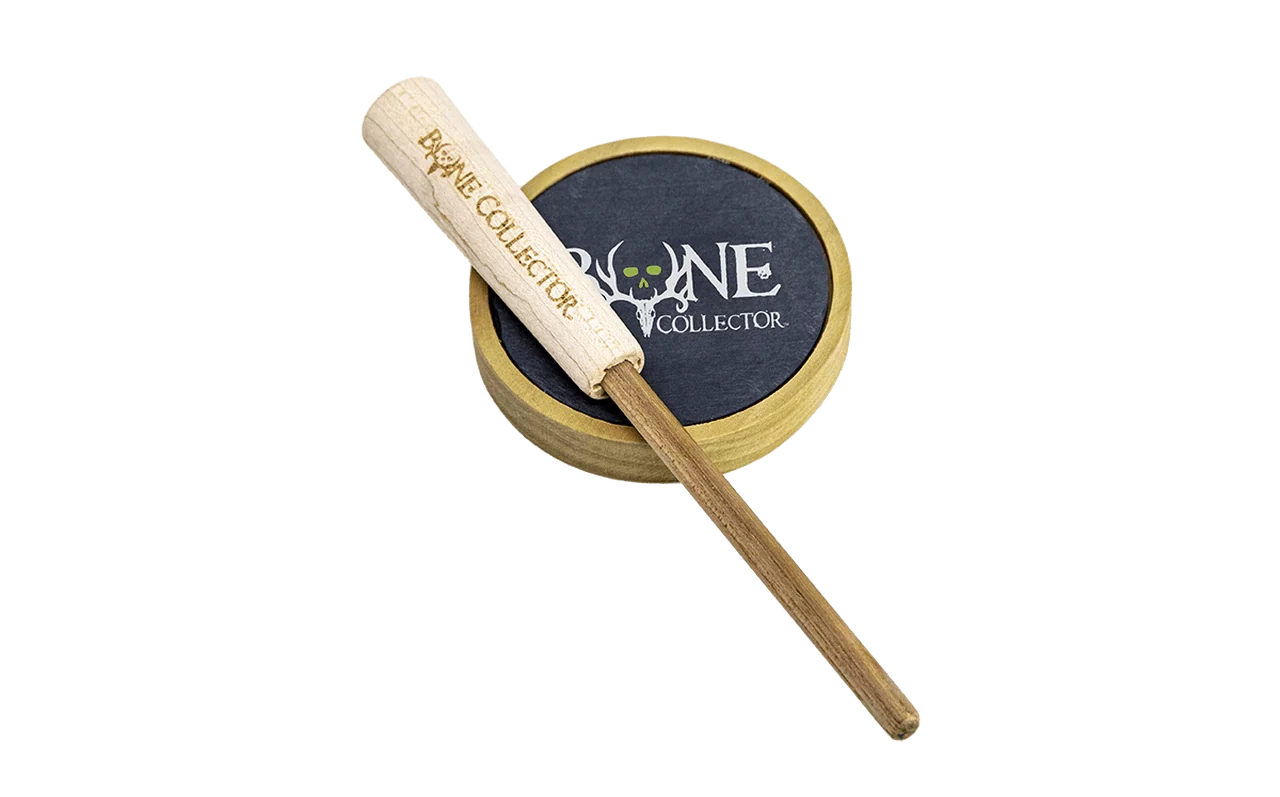When to Pack a Glass Turkey Call
Are you an old dog that can’t learn new tricks? Some seasoned turkey hunters get hooked on specific turkey calls and will often neglect the vast majority of other great options that come out. While it’s tough to argue with their experience, trying new calls can be a huge advantage. This is especially true with someone who has decades of hunting and calling turkeys under their belt. So why not try something new and maybe find your new best turkey call? While a glass turkey call isn’t by any means new to the market, some people seem hesitant to use it. In the video below, Michael walks you through a few reasons why you should really consider adding a glass turkey call to your turkey vest this spring.
Glass vs. Slate Debate
If you already use pot calls, there’s a good chance you have a slate call or two. And while slate turkey calls do produce deep and realistic tones that work great on turkeys (have we mentioned the Lights Out slate call?), they have some disadvantages in certain situations. For example, they usually lose their effectiveness when they get wet. A surprise rain event, high humidity, or dropping it in the dewy morning grass can all spell disaster for your turkey hunt if that’s the only turkey call you have with you.
Glass turkey calls, on the other hand, don’t lose their ability to make turkey sounds when they get wet. If they get soaked by the rain, you probably won’t be thrilled to keep hunting, but the striker will keep making realistic sounds as if nothing happened.
Michael comments “Typically glass calls run better when it comes to moisture in the spring, when you get a thunderstorm that pops up obviously being soaking wet causes a problem but glass calls typically run better in moisture..where a slate call has a deeper, richer tone, but water can completely clam the call up”.
Another benefit of a glass turkey call is that it can easily produce a hen’s raspy notes while also having a high pitch. So when you first start dragging the striker across the surface, it starts out very high pitched and shifts to lower raspy tones. This is a big advantage for cutting through the woods and reaching out to distant toms. The Sweet April glass call is a great choice for this. The tuned mahogany cup has glass over glass, and comes with a durable hardwood striker.

Best Uses for a Glass Turkey Call
As you can see, both kinds of turkey calls work great in different scenarios. And there are other types too (e.g., crystal, aluminum, ceramic, etc.) that work well – we’re not here to slam any of them. But with the benefits of glass calls discussed above, there are a few scenarios where a glass turkey call has the upper hand.
First, if you hunt in areas where high humidity is a constant companion during turkey season (i.e., the South) or you expect occasional spring showers, a glass turkey call is probably a better choice to take with you. Turkeys can be a little more predictable in the rain, so if you can stick it out and keep hunting, a glass call will help you much more than a slate call.
Second, we mentioned that glass calls have the advantage of being high-pitched. You don’t always want a super loud call, as it might spook toms or make them hang up and wait for a hen to come to them. But this high pitch can cut through the woods better than lower tones without being at a high volume. For this reason, a glass call can reach out and strike a turkey from afar very well. As an interested tom closes the distance, you can switch to a mouth call for the close range action, which eliminates the extra movement. But for that first contact at distant turkeys, a glass call is tough to beat.
“If I had one friction call in my turkey bag it would be a glass call…it has a higher pitch, and a higher tone typically than a slate call…its sharp, precise, cuts through the wind, so it makes for a great call to strike a turkey..some of those sweeter, more subtle calls are not as good at striking a turkey” Michael explains.
As we said, we’re not here to knock other turkey calls – they all have their place. But if you’re not already using a glass turkey call, you could be missing out! Michael is demonstrating the sweet april call in this video, take a look by clicking the link below!



